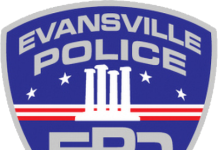Staff Report
TheStatehouseFile.com
INDIANAPOLIS—The 2020 session of the Indiana General Assembly is heading into its final weeks as bills dealing with needle exchange programs and teacher licensing were among those that advanced Wednesday. They include:
House Bill 1182:Â Creates committees to review overdoses and suicides and extends a syringe exchange program.
What it does: HB 1182, authored by Rep. Ed Clere, R-New Albany, would create a suicide and overdose fatality review team to review certain suicide and overdose fatalities. The review team would be allowed to make recommendations concerning the prevention of suicide and overdose fatalities. It would also extend Indiana’s syringe exchange program for another year. It also changes wording within current law that Clere said creates stigma related to HIV and other diseases.
What happened: HB 1182 passed the Senate Health and Provider Services committee with an 11-0 vote.
What’s next: The bill now advances to the full Senate for action.
* * *
Senate Bill 319: Affects teachers’ professional licensing process
What it does:Â SB 319 makes changes to legislation passed last year to address career and technical education when lawmakers required educators to get 15 hours of practical work experience outside of school to renew their license. The bill changes the 15 professional growth experience points teachers must earn from required to optional. It also amends the language and lists other ways to meet the requirement.
What happened:Â An amended version of SB 319 passed the House Education Committee with a 12-1 vote with Rep. Dale DeVon, R-Granger, voting no. An amendment proposed by Rep. Edward DeLaney, D-Indianapolis, more closely align SB 319 with language in a House bill was approved before the vote.
What’s next: The bill advances to the full House for action.
* * *
HB 1341: Students with disabilities
What it does: HB 1341 makes the state advisory council on the education of children with disabilities responsible for developing a plan before Oct. 1, 2020 for special education students who left high school without a diploma. The goal is to provide the students the opportunity to earn a high school diploma and to learn about employment and vocational training opportunities.
What happened: The Senate Education and Career Development approved the bill 9-0 after hearing testimony from seven people in favor of it. The common theme was that the bill gives former students with disabilities the opportunity to receive their high school diploma with the newer resources that schools have to offer.
What’s next: HB 1341 will head to the full Senate for action.
* * *
House Bill 1002: Teacher evaluations
What it does: Removes the requirement that a school corporation’s annual training evaluation must be partly based on their student’s achievements.
What happened: The bill passed the Senate Education and Career Development Committee by an 8-0 vote.
What’s next: HB 1002 will head to the Senate.
* * *
Senate Bill 146: Sexual assault victims’ rights
What it does: SB 146 allows victims of sexual assault to have an advocate present before the forensic exam, collection of evidence, the analysis and during an ongoing investigation.
What happened: The House Courts and Criminal Code Committee passed SB 146 by a 10-0 vote after hearing from witnesses who said that having an advocate present could help a sexual assault victim through the experience. Sen. Blake Doriot, R-Syracuse, introduced the bill, and told the committee his mother had been sexually assault. Samantha McCoy of Bedford, an assault victim, testified that an advocate would have helped her with the trauma she experienced. The bill was changed slightly by an amendment which changed the wording from sexual assault counselor to advocate.
What’s next: The bill will move to the House for further action.
* * *
Senate Bill 216: Disclosure of personal information to offender
What it does: SB 216 would no longer allows a person in prison, county jail, detention facility, or in a community corrections program to have access to public records of personal information of a correctional officer, law enforcement officer, judge, victim or their family.
What happened: Sen. Jack Sandlin, R-Indianapolis, introduced the bill and said it was brought to his attention by a local sheriff’s office. The bill passed the House Courts and Criminal Code by 9-0 vote.
What’s next: The bill moves to the House for further action.
Lacey Watt and Haley Carney contributed to this report. They are reporters for TheStatehouseFile.com, a news website powered by Franklin College journalism students.






